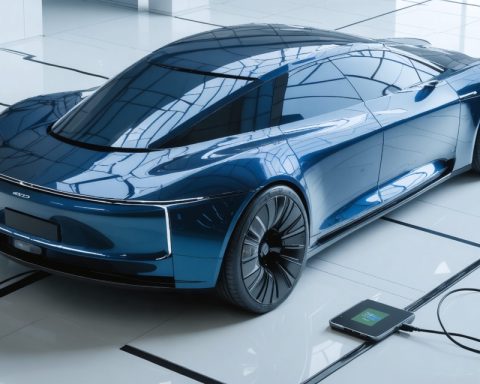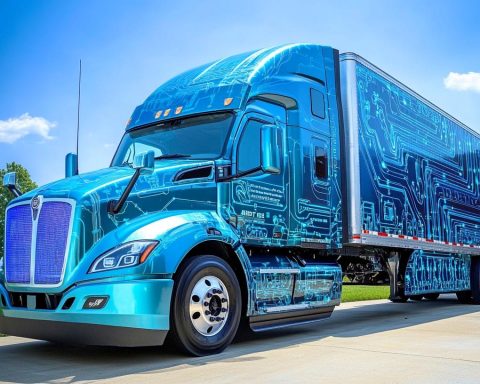In an ambitious push toward a sustainable green revolution, Toyota has unveiled a groundbreaking system designed to leverage liquid hydrogen in vehicles, promising to reshape the landscape of fuel efficiency and vehicle design. This innovative model, centered on a novel self-pressurizing feature, aims to tackle one of the most persistent challenges in hydrogen storage: the loss of boil-off gas.
Revolutionizing Fuel Efficiency with Liquid Hydrogen
Boasting greater energy density compared to its gaseous counterpart, liquid hydrogen holds tremendous potential for long-distance travel in fuel cell vehicles. However, the challenge of boil-off gas—where liquid hydrogen transitions into a gas and is typically lost—has been a significant obstacle. Enter Toyota’s self-pressurizer, a sophisticated system that captures and repurposes this gas into fuel, enhancing vehicle efficiency without drawing additional energy.
Optimizing Hydrogen Storage
The crux of this advancement lies in its ability to convert wasted boil-off gas into a usable resource, relying on the intrinsic pressure created by the gas itself. By channeling the boil-off gas into a compact fuel cell package, Toyota’s system not only conserves energy but also minimizes fuel consumption during storage and transport.
The Road Ahead
Hydrogen expert Dr. Jacob Leachman from Washington State University praises the ingenuity of Toyota’s design, highlighting its potential to revolutionize hydrogen systems. By employing cold energy from boil-off gas for compression, Toyota’s approach may sidestep the vulnerabilities often seen in hydrogen pump systems, marking a pivotal leap for cold hydrogen vehicle technology.
With this innovative experiment, Toyota is paving the way for broader adoption of hydrogen as an eco-friendly fuel, underscoring its commitment to transform the future of the automotive industry into a greener, more sustainable one.
Could Liquid Hydrogen Finally Compete with Battery EVs? Here’s What You Didn’t Know
Beyond the Basics: The Untold Details of Liquid Hydrogen Use in Vehicles
Toyota’s recent innovations with liquid hydrogen are making waves in the automotive industry, but what does this mean for the day-to-day lives of people and the broader community? While much focus has been on the technological aspects, the implications of adopting liquid hydrogen for transportation are vast and multifaceted.
A Sustainable Solution or a Complex Challenge?
One significant, yet under-discussed, outcome of embracing liquid hydrogen is the potential reduction in our reliance on rare earth elements, often needed for lithium-ion batteries used in electric cars. The mining processes for these materials can be environmentally damaging, and their geopolitical implications are considerable. Liquid hydrogen presents an alternative that could alleviate these pressures, as hydrogen is abundant and can be produced sustainably.
But the adoption of liquid hydrogen isn’t without its hurdles. The infrastructure required to support hydrogen refueling stations is currently lacking on a global scale. This gap could slow down the adoption of hydrogen vehicles unless significant investments are made.
Community Impact: Safety and Accessibility Concerns
As with any new fuel source, safety concerns are paramount. Liquid hydrogen must be stored at very low temperatures, and stringent measures are required to prevent leaks and other potential hazards. Public perception on the safety of hydrogen is a crucial hurdle; this perception has been tainted by historical incidents, although modern technologies are vastly improved.
In terms of accessibility, rural and underserved areas might find it challenging to gain access to hydrogen refueling infrastructure, potentially widening the gap between urban and rural communities if not addressed effectively.
Controversies: Environmental Concerns and Efficiency Questions
While hydrogen is touted as a green fuel, the method of production can vary significantly. If the hydrogen is produced through fossil fuel processes, its environmental benefits could diminish, making the fuel far less favorable in terms of carbon footprint compared to its production via renewable electrolysis.
Another controversial point revolves around the energy efficiency of hydrogen fuel cells versus battery electric vehicles (BEVs). Although liquid hydrogen offers high energy density, the overall energy conversion process from production to propulsion can sometimes result in lower efficiency compared to BEVs, which has sparked intense debate among energy experts.
Looking Forward: Can Liquid Hydrogen Become Mainstream?
As more companies follow Toyota’s lead, several questions emerge: Will liquid hydrogen vehicles become affordable? Can infrastructure development keep pace with innovation? These questions remain at the forefront as governments and industries weigh the costs and benefits of shifting toward hydrogen.
Ultimately, the success of liquid hydrogen as a mainstream fuel hinges on overcoming these technical and infrastructural challenges. While Toyota’s advancements are promising, widespread adoption will require concerted efforts from policymakers, industry leaders, and communities worldwide.
For more information on the future of transportation and eco-friendly technologies, explore resources from Toyota and IATA.













